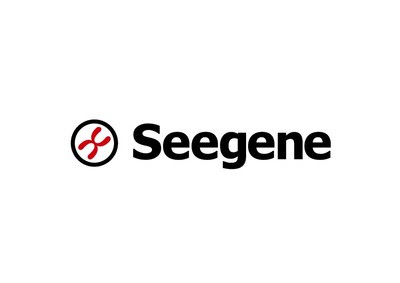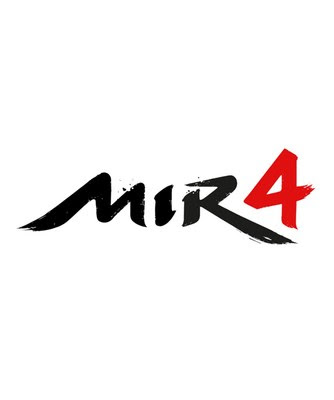VANCOUVER, British Columbia, June 29, 2022 (GLOBE NEWSWIRE) — Asante Gold Corporation (CSE:ASE | GSE:ASG | FRANKFURT:1A9 | U.S.OTC:ASGOF) (“Asante” or the “Company”) is pleased to announce that further to its application for a secondary listing by introduction on the Main Market of the Ghana Stock Exchange (the “GSE”), the Company has received final approval from the Ghana Securities and Exchange Commission and the Ghana Stock Exchange to commence trading.
Trading will commence under the symbol ‘ASG’ at the opening on June 29, 2022.
A copy of the *Prospectus “SECONDARY LISTING BY INTRODUCTION ON THE GHANA STOCK EXCHANGE OF EXISTING 315,007,462 COMMON SHARES OF ASANTE GOLD CORPORATION” is available on the Company’s website indicated below.
Listing Statistics
| Price on CSE(as at date on day of Listing) | CAD$1.58 |
| Initial Listing Price on GSE1 | GHS 8.87 |
| Number of Ordinary Shares listed by Introduction2 | 315,007,462 |
| Market capitalization at Listing Price (CAD$) | 497,711,780 |
| Market capitalization at Listing Price (GHS) | 2,793,158,565 |
Notes:
1. Based on exchange rate of price on CSE at CAD$ 1.00 = GHS 5.6120 as at June 28, 2022 (Bank of Ghana)
2. Number of shares outstanding as at May 31, 2022, the date of the prospectus.
Douglas MacQuarrie, Non-Executive Chairman stated, “It is with a great sense of ‘having arrived’ that Asante is now listed on Ghana’s premier stock exchange, one of the best performing stock exchanges in Africa in 2021. This listing complements our listings in Canada and in Germany and provides our Ghanaian shareholders, and potential new investors, the opportunity to invest and trade their shares locally in Ghana.”
Asante’s CEO, Dave Anthony, added, “Asante has significant ownership by both private Ghanaian investors and Ghanaian institutions, and the Company is excited to be able to offer Ghana’s investment community and all interested investors the opportunity to participate in our growth as we work to achieve our vision of becoming a Tier-1 gold producer in West Africa.”
Black Star Advisors Limited and Black Star Brokerage Limited acted as Arranger and Sponsoring Broker respectively to Asante in respect of the Listing on the Ghana Stock Exchange.
About Asante Gold Corporation
Asante is a gold exploration, development, and operating company with a high-quality portfolio of projects in Ghana. Asante is currently focused on closing the acquisition of the Chirano Gold Mine from Kinross Gold Corporation and developing to production its Bibiani and Kubi Gold mines located on the prolific Bibiani and Ashanti Gold Belts. Asante has an experienced and skilled team of mine finders, builders and operators, with extensive experience in Ghana.
Asante is listed on the Canadian Securities Exchange, the Ghana Stock Exchange and quoted on the Frankfurt Stock Exchange. Asante is also exploring its Keyhole, Fahiakoba and Betenase projects for new discoveries, all adjoining or along strike of major gold mines near the centre of Ghana’s Golden Triangle. Additional information is available on the Company’s website at www.asantegold.com.
About the Bibiani Gold Mine
The Bibiani Gold Mine is a historically significant Ghanaian gold mine situated in the Western North region of Ghana. Bibiani has previous production of +4Moz, is fully permitted with available mining and processing infrastructure on site consisting of a 3 million tonne per annum mill and processing plant.
The Current Mineral Resource Estimate for Bibiani, effective as of November 7, 2021, as set out in the Technical Report titled “Technical Report on the Bibiani Gold Mine, Ghana”, prepared by Ian M. Glacken (FAusIMM (CP), FAIG, CEng) of Optiro Pty Limited and assisted by Dan Bansah (MSc, MAusIMM (CP), FWAIMM, MGIG) of Minecon Resources and Services Ltd. as Qualified Person and filed on SEDAR, is Measured and Indicated for the Bibiani main pit and the Satellite pits at 20.8 million tonnes at 2.71 grams of gold per tonne for 1.81 Moz of gold; and Inferred 8.41 million tonnes at 2.78 grams of gold per tonne for 0.753 Moz of gold. The Mineral Resource has been reported above a 0.65 g/t gold cut-off and has been depleted for both historical open pit and underground development as of August 31, 2017. The Technical Report was prepared using accepted industry practices in accordance with the JORC Code (JORC, 2012). There are no material differences between the definitions of Measured, Indicated and Inferred Mineral Resources under the CIM Definition Standards and the equivalent definitions in the JORC Code. The Satellite pit resource is an update completed in 2018 by Resolute Mining Limited, the former owner of the Bibiani Gold Mine. The Satellite pit resource is also reported above a cut-off grade of 0.65 g/t gold inside a pit shell defined at a gold price of US$1,950. Mineral resources that are not mineral reserves do not have demonstrated economic viability.
About the Chirano Gold Mine
Chirano is an operating open-pit and underground mining operation located in southwestern Ghana, immediately south of the Company’s Bibiani Gold Mine. Chirano was first explored and developed in 1996 and began production in October 2005. The mine comprises the Akwaaba, Suraw, Akoti South, Akoti North, Akoti Extended, Paboase, Tano, Obra South, Obra, Sariehu and Mamnao open pits and the Akwaaba and Paboase underground mines. Gold Equivalent Production in 2021 was 154,668 oz on a 100% basis (source Kinross Gold Corporation).
For further information please contact:
Dave Anthony, President & CEO: dave@asantegold.com
Malik Easah, Executive Director: malik@asantegold.com
Frederick Attakumah, Executive Vice President: frederick@asantegold.com
Alec Rowlands, Capital Markets Consultant, alec@asantegold.com
Valentina Gvozdeva, Manager IR, valentina@asantegold.com
Kirsti Mattson, Media Relations, kirsti.mattson@gmail.com
Cautionary Statement on Forward-Looking Statements
This news release contains forward-looking statements. Forward-looking statements involve risks, uncertainties and other factors that could cause actual results, performance, prospects, and opportunities to differ materially from those expressed or implied by such forward-looking statements, including statements regarding the structure and terms of the Chirano Acquisition, timing for completion of the Chirano Acquisition, the ability of the Company to complete the Chirano Acquisition on the terms announced, the ability of the parties to satisfy all administrative matters required in order to consummate the Chirano Acquisition, anticipated synergies, the resources, reserves, exploration results, and development program at Chirano, Bibiani and Kubi, including timing of future mine development and the start of production. Factors that could cause actual results to differ materially from these forward-looking statements include, but are not limited to, the inability to satisfy any condition required to complete the Chirano Acquisition, termination of the share purchase agreement, variations in the nature, quality and quantity of any mineral deposits that may be located, the Company’s inability to obtain any necessary permits, consents or authorizations required for its planned activities, and the Company’s inability to raise the necessary capital or to be fully able to implement its business strategies. The reader is referred to the Company’s public disclosure record which is available on SEDAR (www.sedar.com). Although the Company believes that the assumptions and factors used in preparing the forward-looking statements are reasonable, undue reliance should not be placed on these statements, which only apply as of the date of this news release, and no assurance can be given that such events will occur in the disclosed time frames or at all. Except as required by securities laws and the policies of the Canadian Securities Exchange, the Company disclaims any intention or obligation to update or revise any forward-looking statement, whether as a result of new information, future events or otherwise.
LEI Number: 529900F9PV1G9S5YD446. Neither IIROC nor any stock exchange or other securities regulatory authority accepts responsibility for the adequacy or accuracy of this release.





